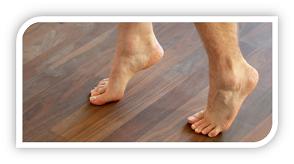Pride Will Have a Fall
Pride Will Have a Fall
Pride is the opposite of humility. We could call pride the source of sin. Indeed this is where sin begins – where we in pride want to be as God. Pride is always a vice. It is pride when we do not consider what we are and what we have as a gift of God, but we exalt ourselves in it and we seek our own honor.
God's Word is full of warnings against pride, and spurs us to humility: "Likewise, ye younger, submit yourselves to the elder, yea, all of you be subject one to another, for God resisteth the proud, but giveth grace to the humble" (1 Pet. 5:5). "But ye rejoice in your boastings" (Is. 4:16). "He has scattered the proud in the imagination of their heart" (Lk. 1:51). "Charge them that are rich in this world, that they be not high-minded" (1 Tim. 6:7). "The patient in spirit is better than the proud in spirit" (Eccl. 7:8). These are but a few of the texts in God's Word that show us what is wrong with pride and warn us to fight against pride.
What is pride? My dictionary gives various words for the same thing: pride, haughtiness, self-importance, egoism, vanity, conceit, self-love, self-glorification, vain-glory.
If we consider these words, there is reason enough to search our heart and life in the light of God's Word.
Pride means imagination; we imagine ourselves to be someone. We would place ourselves above another. We feel ourselves superior to another; our self-respect has taken a sickly aspect. We look down upon others. We live with others with ourselves in mind. We feel ourselves more important and better than others. We show ourselves greater than we really are. We roughly trample others under foot. Pride is satisfying our own self. Pride is egoism. Usually a proud person has better thoughts of himself than actual facts justify. He wants to leave an impression upon himself and others that he is someone while actually he is not what he claims. Usually we are blind for this fault in ourselves.
It is not always our evil intention to be proud. Lacking self-knowledge, we often think we are very humble. We read in Galatians 6:3: "For if a man think himself to be something, when he is nothing, he deceiveth himself." There is more pride in us than we think. We all have more or less the urge to be more than the other. Pride also makes us suspicious. When facts become known, and we hear criticism, we feel insulted and hurt. Then we think that others are jealous of our success, and that others have a grudge against us. We are usually not inclined to seek the fault in ourselves first.
A humble person feels not the least need to display his knowledge and abilities, his gifts and his talents. A proud man does feel that need. He likes to tell and show others what he thinks he knows, and has and can do. He tells it to everyone, often with the intention of hurting another. Behind pride fear hides, the dread that others will consider him ignorant. A proud person always has a deep feeling of inward peril.
For a proud man it is difficult to really live. He lacks the warmth of friendship and love. He cannot give himself for another. He does not accept himself, nor the other, nor even life. He enjoys himself with himself, and maintains himself in the small world of himself. As Nebuchadnezzar, he only sees the great Babylon that he has built. He feels himself threatened, and is very lonesome. He lives outside the actuality of life and therefore does not feel at home.
He seeks an escape, but always meets himself. A proud man is a pitiable man, for God resists the proud.
The displeasure of God rests upon the proud person. There is no single characteristic for which we must pay so dearly as pride. Pride precedes destruction. We read in Proverbs 29:23: "A man's pride shall bring him low." Pride keeps us back from admitting our guilt when we are wrong. We see the fault in another, and maintain ourselves and our opinion. The result is that there are feelings of guilt deep in our heart to vex us. Pride causes us to hide our faults from others. Therefore it is necessary for us to maintain a false front continuously, and that is very tiring. Nobody can keep on walking on his toes.
Pride breaks the bond of communion, and that at a very high price.
A proud person is a lonesome person. That does not mean that all lonely people are proud. It may be that someone is truly humble, and yet lonesome, because there are so many proud people around him.
Pride breaks the bond of unity, friendship and love. The pride of Adam and Eve, wanting to be as God, broke the bonds of love and friendship with God. It is one of the most common causes of broken engagements and marriages. We are unwilling to yield to another. Neither of the two parties is willing to be the lesser. In most of the difficulties between mutual human relationships pride plays an important role. Many marriages are broken needlessly because one of the two parties was unwilling to yield. Quite a few disagreements in the church would be solved easily if there were more humility. Pride is stubborn, demanding, and never sensitive or accommodating. A proud person always thinks himself shortchanged because he does not get the attention he thinks he deserves.
 Where do we find pride? We need not go far. By pointing our finger at another first, we show our own blindness and pride. Let us begin with our own heart and life. In this it is also true: "In Adam's fall, we sinned all." We all suffer with this ailment. It is a root sin that lives in the heart of all of us. It is a parasite that spreads through our whole life. We need very much the discovering light of God's Word and Spirit, so that we may know, confess, fight and forsake our sin and corruption. We read in Hebrews 12:1: "Let us lay aside every weight, and the sin which doth so easily beset us." It is this that we often find in personal life, in married life, in church life, and in our life as church office-bearers. Let us search our heart and life.
Where do we find pride? We need not go far. By pointing our finger at another first, we show our own blindness and pride. Let us begin with our own heart and life. In this it is also true: "In Adam's fall, we sinned all." We all suffer with this ailment. It is a root sin that lives in the heart of all of us. It is a parasite that spreads through our whole life. We need very much the discovering light of God's Word and Spirit, so that we may know, confess, fight and forsake our sin and corruption. We read in Hebrews 12:1: "Let us lay aside every weight, and the sin which doth so easily beset us." It is this that we often find in personal life, in married life, in church life, and in our life as church office-bearers. Let us search our heart and life.
In this connection practical Christianity means that we must search the field of our life to find this parasitic plant. We must fight and destroy that weed. We so gladly hide and conceal ourselves behind our impotence. We proudly say, "That's the way we are." And, to be honest about it, we do not think our character sins are so bad. The mistaken idea lives in us that we have a wonderful excuse in the fact that we did not make ourselves. The big fight a Christian must fight is against his own "I" against himself.
Practical Christianity compels action. It is bringing into practice what God's Word commands us. Living in pride is an unchristian life.
How can we fight and conquer our pride? Not in our own strength, but by denying ourselves as we follow Christ.
We must learn to know the actuality and truth of our pride, rightly and fundamentally.
The light of God's Word must shine into the deepest corners of our heart. That pride is most dangerous which we do not recognize in ourselves. We talk very humbly and think we are so humble. But the truth becomes evident when we are shown our faults, for then we begin to excuse ourselves. We must begin to fight against ourselves. We must wrestle and beseech the Lord for the grace of God in our heart to live to the honor of God and the welfare of our neighbor. In His Word the Lord shows us the way to be delivered of self: "Be clothed with humility: for God resisteth the proud, and giveth grace to the humble. Humble yourselves therefore under the mighty hand of God, that He may exalt you in due time" (1 Pet. 5:5-6).
There is almost no lesson Jesus taught with so much emphasis and earnestness to His disciples as the lesson on humility. There is no danger against which He warned so earnestly as the sin of pride.
 To be able to enter the kingdom of God, we must become as little children, dependent and affectionate. The Lord Jesus placed a little child in the midst of the disciples as an example to show that the least is the greatest. He taught that the main characteristic of the true Christian is humility. He said plainly that in the kingdom of heaven there is no place for those who exalt themselves.
To be able to enter the kingdom of God, we must become as little children, dependent and affectionate. The Lord Jesus placed a little child in the midst of the disciples as an example to show that the least is the greatest. He taught that the main characteristic of the true Christian is humility. He said plainly that in the kingdom of heaven there is no place for those who exalt themselves.
Our pride must be broken down. We must learn to serve, to give ourselves for others. Jesus Christ made Himself of no reputation and took upon Him the form of a servant. He said to His disciples, "I am among you as he that doth serve." Blessed are they that follow in His footsteps, and learn to bow before Him in the dust. That is practical Christianity.

Add new comment